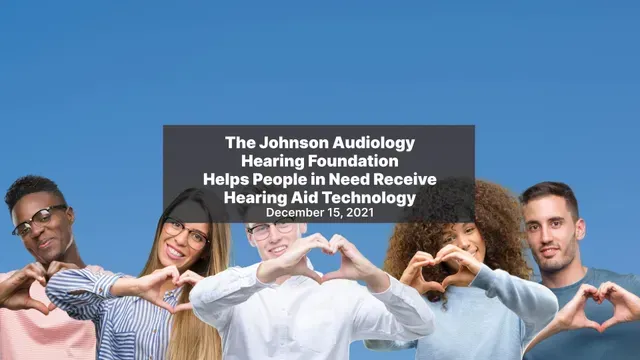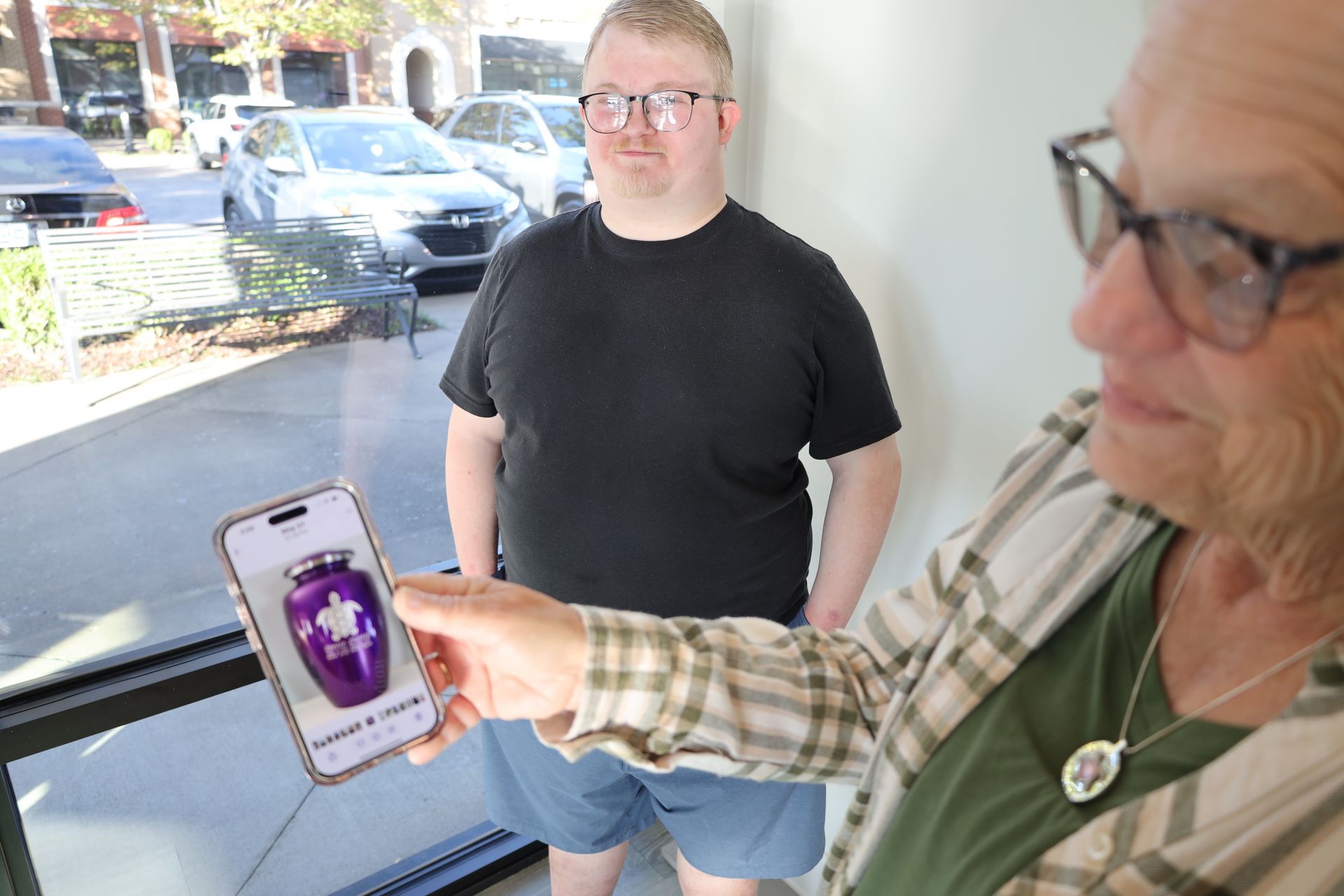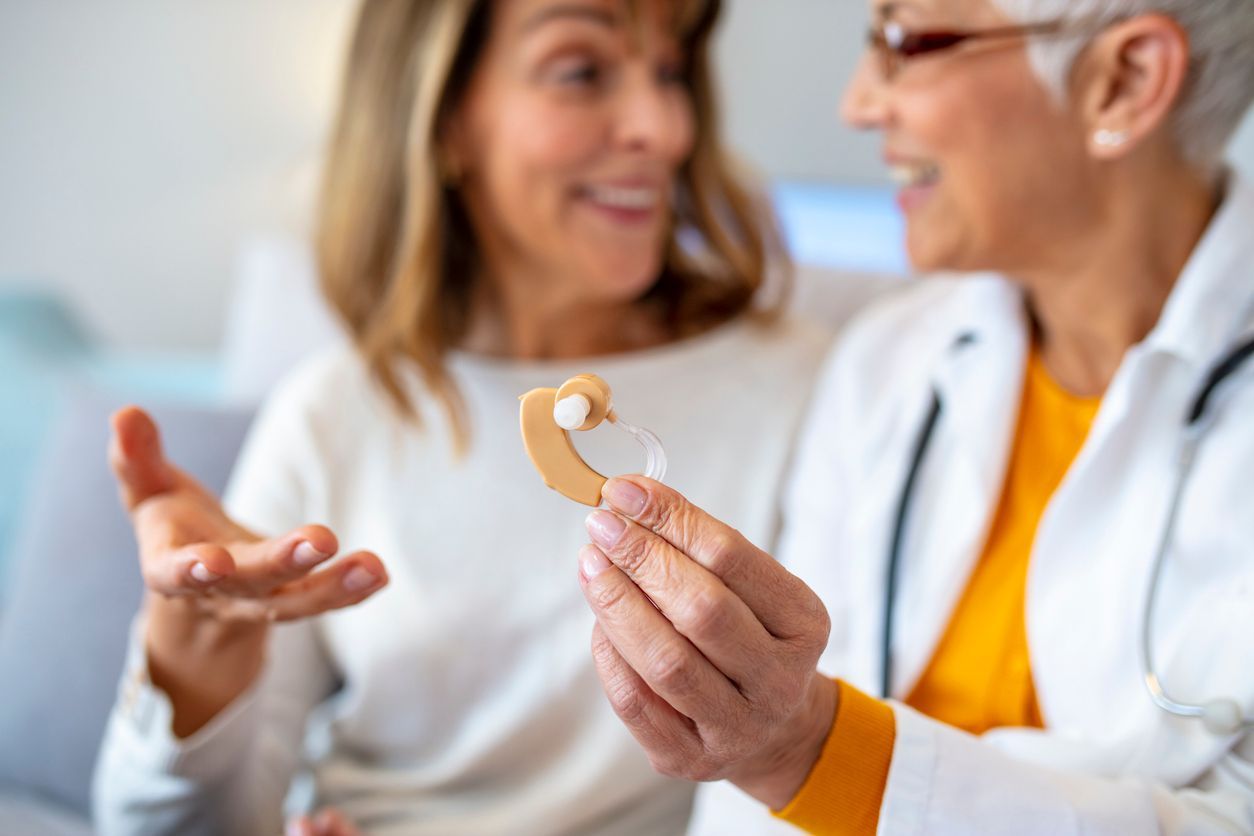The Johnson Audiology Hearing Foundation
Helping More People Hear: The Mission of the Johnson Audiology Hearing Foundation

In October 2019, Johnson Audiology launched the Johnson Audiology Hearing Foundation (JAHF), an official 501c3, non-profit organization for the purpose of helping those in financial need receive the gift of hearing. Since then, dear patients and others in the community have donated more than 200 hearing aids and hearing aid accessories to the cause.
“We have been so touched by people’s spirit of giving in the two years since JAHF was founded. Because of people’s donations of gently used hearing aids as well as monetary gifts, many people in the communities we serve have been fitted with hearing technology. The gift of hearing can be a gamechanger for people,” said Dr. Megan Johnson, an audiologist and owner of Johnson Audiology.
Seth Robinette agrees. His application to JAHF was reviewed and accepted during the height of the COVID-19 pandemic in the summer of 2020. Mr. Robinette had been struggling with hearing loss, and it was impacting various aspects of his life, including his job. After coming to Johnson Audiology and receiving hearing aids by way of the Foundation, he said, “I feel like my ears have a new home, and it’s Johnson Audiology. This place turned my unfortunate hearing loss from a negative in my life to a great and wonderful experience. With my hearing aids, I feel like I’ve stepped out into a brave new world with ears to hear the things I have been missing in life, which in turn, re-establishes my confidence to
take on the world.”
Life-changing stories like this from JAHF recipients are exactly the impacts Dr. Johnson and her team had hoped for when the Foundation was started. Dr. Johnson says, “Hearing is one of the most important of human senses and should never be underestimated or dismissed. It empowers a person to live life without limitations. It connects people to those around them, allowing better communication and socialization with friends and family, greater opportunities in your career, even heightened physical safety as our sense of hearing is one of our body’s most potent warning systems to protect us from danger. Healthy hearing links us to the world in a way that none of our other senses achieve.”
Dr. Whitney Smith, an audiologist in Johnson Audiology’s Chattanooga office and a Foundation officer, explained that JAHF’s mission is straightforward—to pair those who cannot afford hearing technology with hearing aids and services. She also said, “We put a lot of thought into our vision statement because we wanted it to reflect how strongly we feel about healthy hearing being a basic human right that everyone should be able to harness.” The Foundation's vision statement sums up its goal:
The Johnson Audiology Hearing Foundation recognizes that healthy hearing harnesses a person’s ability to be an active participant in life rather than an isolated bystander. The Foundation also purports that communication is a basic human right. Thus, the Foundation’s vision is to make quality hearing health care and technology available and accessible to those with financial need who are struggling with hearing loss. This will be accomplished by mobilizing the power, expertise and passion of hearing health care professionals, volunteers and donors.
Jan Hollingsworth, JAHF’s Donation Coordinator, said, “The Foundation accepts gently-used hearing aids and accessories, as well as monetary gifts from gracious donors.” JAHF also works with several of the major hearing aid manufacturers as they either refurbish the donated aids we receive or donate to JAHF by way of slightly older model aids they have in stock.
Dr. Johnson added, “Our audiologists are committed to the Foundation, and their volunteerism speaks to the passion they bring to their profession. They truly want to help people hear better.”
Dr. Smith said she has seen firsthand what donations can mean to everyone involved. “I’ve dedicated my life to helping people hear. I couldn’t have chosen a more fulfilling profession. It’s incredibly rewarding watching a person’s face light up when I fit them with hearing aids and sound becomes a part of life again. Offering that experience to someone who thought hearing aids were financially out of reach—it doesn’t get any better than that!” She said, “It is so gratifying for donors, also. There’s no better feeling than to help someone in need with a gift that makes an immediate and lasting impact on their lives. It’s a win-win!” In fact, Dr. Smith has requested that her own family members make donations to the Foundation in lieu of Christmas and birthday gifts to her. Dr. Smith said that just like with any charitable gift, a donation to JAHF can be used as a tax deduction. “We mail acknowledgement letters for both monetary gifts and technology donations with a dollar value assigned to the gift based on the brand, style, and age of the hearing aid. The letter can be used as a receipt for tax purposes.”
Mrs. Hollingsworth said, “We’ve received hundreds of pieces of donated technology since the Foundation’s inception in October 2019. Many are gently used devices without too much wear and tear from the previous owner, and those are what we use to place on Foundation recipients.” Some donations, however, are devices that were custom-fit to the original owner. “We also get devices that are quite old. Neither of these scenarios are appropriate for placement on someone else,” said Dr. Johnson. In those cases, JAHF seeks to send the devices to organizations that dismantle them into components and parts that can be recycled or reused.
Dr. Johnson said, “Many patients choose to move into new technology and have donated their older aids to the Foundation rather than the aids taking up space in a drawer at home. It’s a way of giving your aids a second life.” Additionally, aids have been donated by family members after a loved one has died.
Dr. Johnson also said that if a person is ineligible for help through JAHF, Johnson Audiology will seek to work with them in other ways. “We have many avenues for helping a person get the hearing technology they need. For instance, Johnson Audiology verifies every patient’s health insurance benefits. Some policies have programs for hearing aid technology. Also, a great organization—the Georgia Lions Lighthouse Foundation—is an opportunity for residents of Georgia who are in need of assistance with hearing care. For years, Johnson Audiology has partnered with the Lighthouse Foundation to get people into the hearing technology they need.”
The World Health Organization (WHO) estimates that 466 million people worldwide are affected by disabling hearing loss and that number will soar to more than 900 million by 2050. In 2014, the Centers for Disease Control and Prevention (CDC) identified hearing loss as the third most common chronic physical condition confronting Americans today. Dr. Johnson said, “Clearly, organizations that make hearing technology available for people will be an ongoing need as we move into the future. A gift to the Johnson Audiology Hearing Foundation is a way we can all do our part.”
Make a contribution or apply for assistance to the Johnson Audiology Hearing Foundation.
Recent Posts



